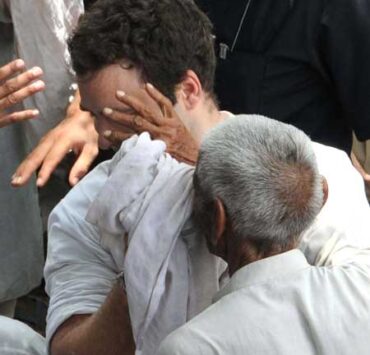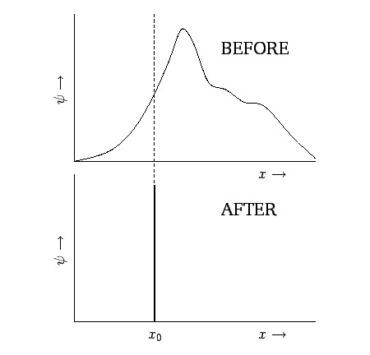Like many others, I have often felt that novels don’t really translate into good movies. Not always, anyway.
We get the occasional jaw-droppers like the Lord of the Rings trilogy or The Silence of the Lambs where the movie version may surpass the original source material. There are some like Revolutionary Road or American Psycho which seem just as good. And then there are the clunkers, such as the first four Harry Potter movies, Interview with the Vampire and The Golden Compass.

Benedict Cumberbatch and Martin Freeman as Sherlock Holmes and Dr John Watson in the B.B.C. One series Sherlock.
Television shows adapted from books, however, are a different matter. For instance, one of the commonest complaints one heard about the Harry Potter movies was that the filmmakers had skipped a lot of the details and finer plot points. One can see what the problem would be for the filmmakers, given that they have only three hours—at the most–in which to tell the story. With television, time isn’t really a problem. The plot can unfold at a slower pace, include the tiniest details and add more layers to the characters and their stories. That is perhaps why we have seen so many wonderful novel-to-television translations, such as Game of Thrones, Sherlock, Dexter, True Blood, Brideshead Revisited, and Wallander that seem to satisfy even the most exacting fans. Starting today, this column will look at some of these shows and examine how they improve upon their source material and also in what ways they fall short. We begin with the B.B.C. One series, Sherlock, which is based on the Sherlock Holmes stories by Sir Arthur Conan Doyle.
Anyone who is remotely interested in watching good television is familiar with the basic premise of Sherlock. It is a modern take on the original stories, complete with mobile phones, remote-controlled explosives, and cameras. The characters are all the same: there’s Sherlock Holmes, Dr John Watson, Mrs Hudon, Lestrade, Mycroft Holmes, James (or rather, Jim) Moriarty, and Irene Adler. The names of the cases have been tweaked just a little and they have some points in common with the stories penned by Sir Arthur: The Hounds of Baskerville does feature a hound, in a manner of speaking, while in A Scandal in Belgravia a mobile phone with compromising pictures, rather than a bunch of compromising letters, forms the crux of the plot.
What is really interesting, however, is how much further the show goes than the original stories in developing the characters of the two protagonists and their relationship. Part of it is, of course, because the show is a product of its times, just like the stories. Sir Arthur showed a certain restraint when dwelling on the nature of the Holmes-Watson relationship, which was only natural given that he was writing in the 1800s. Sherlock, on the other hand, comes in an age of greater emotional demonstrativeness. We expect more from the stories than a succession of logical deductions; we want heart. We need to be passionately involved with the lives of these characters and that can’t happen unless they show us their human side. So we love scenes from the show, such as the one where Sherlock thinks John is coming onto him; or the sequence where John instructs Sherlock on how to conduct himself in public. In the original stories, the awe in Watson’s voice was perhaps too strong. Seen through his eyes, Sherlock was scarcely human; rather, he was a subject whose habits and methods were to be studied. The characterisation of Watson too suffered in the stories, because we never really saw him as a person in his own right. His sole qualities seemed to be unflinching admiration for Holmes and a tendency to set aside his life to assist Holmes on his cases.
With the T.V. show, however, we see two flawed and fascinating characters who share a recognisable kind of friendship, which isn’t one-sided. Sherlock, while often impatient with people, clearly cares about at least a few of them. He may not have all the social graces that make up a decent human being, but he is trying. And John isn’t merely a biographer for a great ‘consulting detective’. He’s a good and loyal friend, who isn’t afraid to speak his mind and succeeds in getting his roommate to toe the line. Their relationship is much less lopsided here.
The show has completed two seasons so far, and the third instalment is expected to start early next year. Sherlock ‘died’ in the last episode of the second season, which involved some rather touching farewell scenes. And if the creators of the show decide to get John married off in the coming episodes, it will certainly be interesting to see how the new and improved version of Sherlock reacts to that.









Well said! Although I think credit to the brilliant execution
I agree, the execution deserves a lot of credit. It is certainly one of the best made shows in recent times
You are being a little unjust when you talk about the Victorian version of Holmes and Watson. Given, they were not that vocal about their feelings. Neither did they dabble in sexual innuendos. But hinting that they were one-sided would be doing injustice to the legacy of the original Sherlock Holmes. Watson was an admirer. But he was not just that. He WAS a good and loyal friend. And while Sherlock was extremely precise and methodical, he too let slip away a hint or two every now and then (Case in point: Adventure of the Three Garridebs). I have read all the stories and have seen the TV series as well. While the series is good in its own right, the original stories are remarkable if only one could take into account the audience for which they were written. Saying one is better than the other doesn’t seem quite right to me.
Btw, in A Scandal in Bohemia, there was a compromising photograph involved. Not letters.
Thanks for taking the time out to read and comment, Siddharth! I apologize for my mistake…it is indeed a compromising photograph and not a bunch of letters.
You’re absolutely right on the other count as well. The original stories were written for a certain readership, but my point is that in today’s day and age, where we are used to more explicit and frank portrayals of friendships, the original Holmes-Watson relationship seems oddly formal. In fact, immediately after I watched the show, I read my collection again. I won’t deny that I enjoyed the stories; I devoured them, you might say. Yet, I found that I couldn’t get as emotionally involved with the original stories as I did with the show.I would put that down to a number of factors including the fact the both protagonists are played by very compelling actors, and that we can actually put suitable faces to the names, and that the show itself is so well-executed. However, what I felt really made the show enjoyable was not just the cases and Sherlock’s trail of deductions, but also the way in which the relationship was explored.
That’s quite right. Given the different audiences for which the books were written or the show was produced, they both do justice. The Victorians were too prim and proper for their own good. Holmes, in a way, took their orderliness to the other extreme. The TV show, on the other hand, would feel incomplete if Holmes was nothing more than a machine for following up on clues. We are a voyeuristic generation (were we ever not?) and derive pleasure from knowing about other people’s lives. It is even better it is someone like Holmes.
My grouse lies with comparing one against the other. I feel it would be unfair to do so. That being said, I feel that the series scores points as far as the this abrupt transfer of sensibilities is concerned. Which fan hasn’t wondered what Holmes would be like in her/his time? The sly references to other stories, though sometimes coming across as forced, tells us that the screenwriters know their Holmes. Though I do agree: Benedict Cumberbatch does a very good job of portraying the part of an arrogant, self-immersed, eccentric genius. I wouldn’t be surprised if some big Hollywood studio casts him to reprise the role in a movie.
I really think you need to change the font on your site. My eyes are bleeding right now(figuratively speaking, of course) Apart from that, looking forward to your column as I’m an avid follower of Sherlock and some of the other shows you have named.
Cheers. :)
Thanks, Shibesh! And if any shows come to your mind, which you think could be discussed here, please do let me know.
I have been a fan of Sherlock Holmes for a very long time now. As an ‘exacting’ fan, as you mentioned, I wasn’t too impressed with the two movies that released, starring Robert Downey Jr. and Jude Law. But I was overwhelmed with the TV series. And I completely agree with you on the fact that what made the TV series all the more enjoyable was the relationship between Holmes and Watson.
I, too, went back to reading the stories all over again after I completed both the seasons in a matter of a couple of days and they became all the more interesting as I now had concrete images of what Sherlock and Watson would look like.
Very well put. Looking forward to reading your other posts. :)
Thanks for reading and commenting, Anurag! I must admit, I did enjoy the two movies with Robert Downey Jr. However, that was only because I stopped thinking of the two characters as Sherlock Holmes and Dr. Watson. I only thought of them as ‘a detective and his friend’, so it was much easier to enjoy the humour and the adventure.
I remember thinking that this is the first time I thought of Sherlock as an unpopular person. Somehow, the books had elevated him to some godly status and I forgave him his eccentricities because of his brilliance. I felt the TV series don’t ask that of me. Nice post Pooja:)
Thanks Anjali! I agree, the reaction that his acquaintances have to Sherlock’s personality seem much more realistic on the show. You can see that they’re tolerating him simply because he’s a genius.
I haven’t seen the TV series.. But I look fwd to your posts. The premise is very interesting. How about featuring Sex and the City?
Hey Pooja… stumbled upon this by chance :) good stuff… which other book-TV series are you planning to write on?